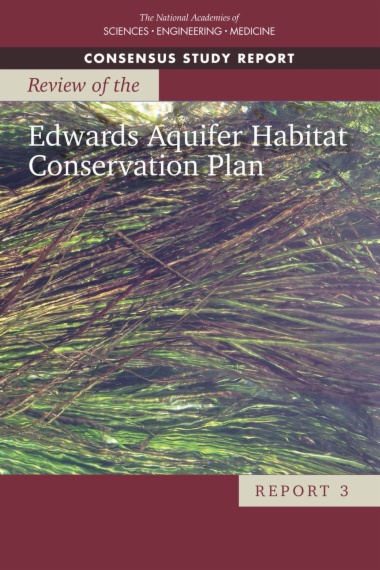

The Edwards Aquifer in south-central Texas is the primary source of water for one of the fastest growing cities in the United States, San Antonio, and it also supplies irrigation water to thousands of farmers and livestock operators. It is also the source water for several springs and rivers, including the two largest freshwater springs in Texas that form the San Marcos and Comal Rivers. The unique habitat afforded by these spring-fed rivers has led to the development of species that are found in no other locations on Earth. Due to the potential for variations in spring flow caused by both human and natural causes, these species are continuously at risk and have been recognized as endangered under the federal Endangered Species Act (ESA). In an effort to manage the river systems and the aquifer that controls them, the Edwards Aquifer Authority (EAA) and stakeholders have developed a Habitat Conservation Plan (HCP). The HCP seeks to effectively manage the river-aquifer system to ensure the viability of the ESA-listed species in the face of drought, population growth, and other threats to the aquifer.
This report is the third and final product of a three-phase study to provide advice to the EAA on various aspects of the HCP that will ultimately lead to improved management of the Edwards Aquifer. This final report focuses on the biological goals and objectives found in the HCP for each of the listed species.